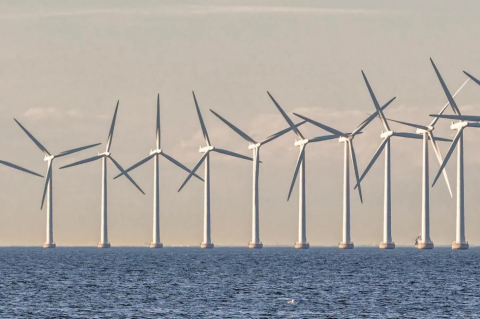Offshore Wind Energy Engineering
Spring: Sep 15
Summer: n/a
Hybrid
Part-time
Overview
The PhD program in offshore wind energy engineering provides interdisciplinary training in offshore wind engineering, transmission infrastructure, maritime studies, ocean resource characterization, and environmental permitting.
The program is offered through the Department of Civil and Environmental Engineering.
Program Highlights
At Tufts, you’ll earn a student-centered education at a top-notch research university, with small classes and cutting-edge, interdisciplinary research led by innovative faculty who are here to help you succeed. Common research areas include:
- Infrastructure and transmission
- Site characterization and permitting
- Foundation design and monitoring
Program requirements are similar to those outlined for PhD studies in Civil and Environmental Engineering. Courses may be selected from the Offshore Wind Energy Engineering MS curriculum chosen in consultation with the program advisor.
Career Highlights
Offshore wind energy plays a critical role in the world’s transition to an electricity-based, clean energy economy. Standing at the intersection of infrastructure, manufacturing, and ocean science, offshore wind engineers work effectively with a wide range of partners to deliver technical excellence in the context of evolving markets, policies, and regulations.
As the wind energy industry continues to rapidly grow, your career possibilities as an offshore wind energy engineer will grow with it. Renewable energy is a key piece of the “green economy” puzzle—and wind power (which provides thousands of jobs in the United States every year) is one of the fastest growing sectors in renewable energy.
Our faculty offer perspectives rooted in research and industry experience, so you’ll receive world-class training in wind policy, technical applications, and project management to prepare you for jobs in global industry, academia, and the public sector.
Application Requirements
The PhD in Offshore Wind Energy Engineering is the highest level of study and requires a serious commitment. Students who have excellent academic backgrounds and demonstrated capability for independent study/research are encouraged to apply to the program.
Students entering the PhD program are expected to meet the general admission requirements of the graduate school; gain acceptance into the Department of Civil and Environmental Engineering; and hold a bachelor's or master's degree in engineering or a related field.
- Application Fee
- Resume/CV
- Personal Statement
- Transcripts
- Three letters of recommendation
- Official TOEFL, IELTS, or Duolingo test scores (if applicable)
- GRE General Test scores are not required
- Portfolio (optional)
Tuition and Financial Aid
We recognize that attending graduate school involves a significant financial investment. Our team is here to answer your questions about tuition rates and scholarship opportunities.
Please contact us at gradadmissions@tufts.edu.
Spotlight
Faculty

Laurie Gaskins Baise

Laurie Gaskins Baise
Research/Areas of Interest: geotechnical earthquake engineering, seismic hazard mapping, natural hazards

Eric Hines

Eric Hines
Research/Areas of Interest: Offshore Wind Energy Structural Design Earthquake Engineering

John Germaine

John Germaine
Research/Areas of Interest: geotechnical, laboratory testing, automation, soil behavior, physical properties, mechanical properties, material science

Daniel Kuchma

Daniel Kuchma
Research/Areas of Interest: design, behavior, and modeling of concrete structures

Jonathan Lamontagne

Jonathan Lamontagne
Research/Areas of Interest: • Hydrologic Extremes • Water Resources in a Changing World • Energy Systems Modeling • Robust Adaptive Planning

Babak Moaveni

Babak Moaveni
Research/Areas of Interest: Probabilistic system identification of structures, signal processing, Bayesian inference, model updating, structural dynamics, earthquake engineering, uncertainty quantification, verification and validation of computational models.

Masoud Sanayei

Masoud Sanayei
Research/Areas of Interest: Bridge structural health monitoring, building train-induced vibrations, nondestructive testing of full-scale structures, fatigue life prediction of structures with nonproportional multi-axial loading.
